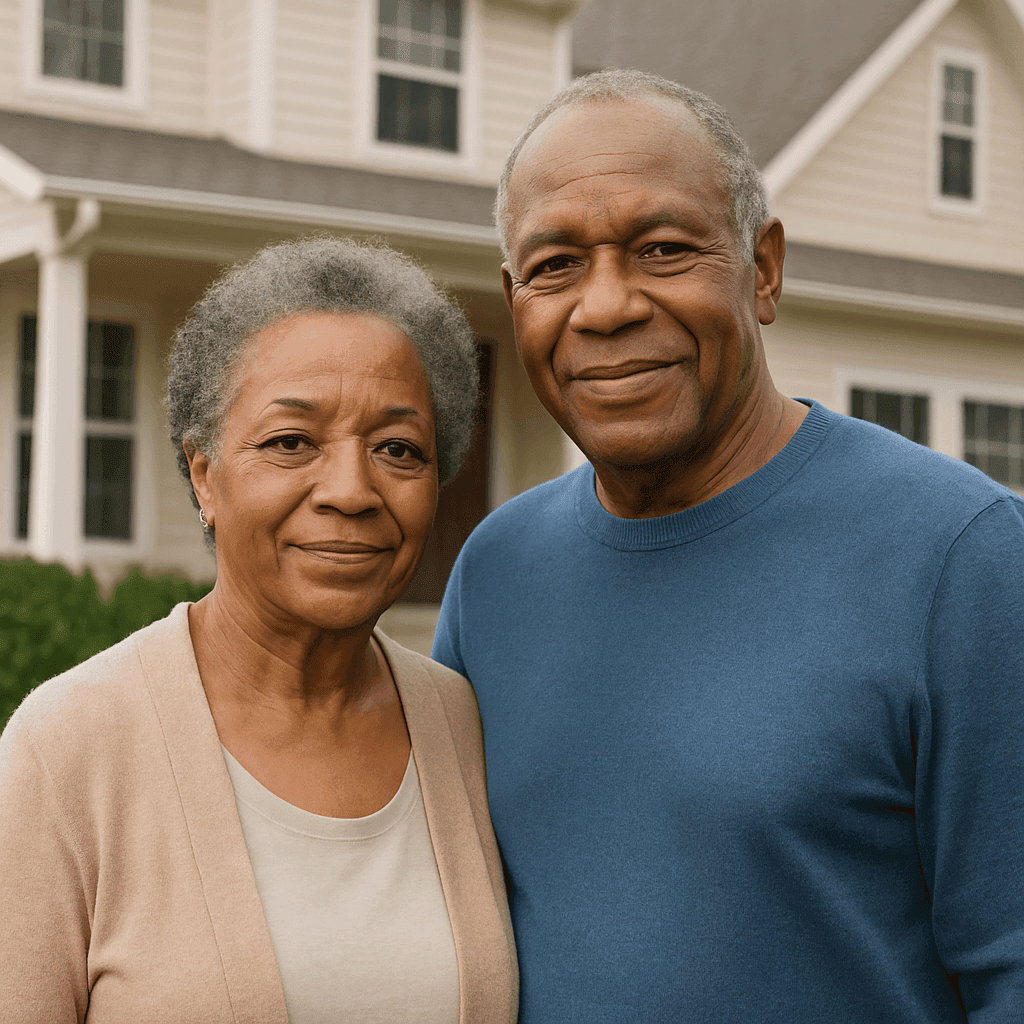🏡 Buying a Home in Retirement: Should You Pay Cash or Use a Reverse Mortgage for Purchase?
If you're over 62 and looking to buy your next home—whether it's downsizing, relocating, or finding the perfect place to enjoy your retirement—you might be thinking about paying cash to avoid a mortgage. But before you put all your money into a home, there’s another option to consider: the Reverse Mortgage for Purchase, also known as a HECM for Purchase. It allows you to buy a home using a combination of your own funds and a reverse mortgage—without a monthly mortgage payment. Let’s compare both options so you can decide which makes more sense for your goals and financial situation.

💰 Option 1: Paying Cash for Your Home
✔️ Pros:
No mortgage debt – You own the home free and clear.
No interest charges – You avoid financing costs altogether.
Maximum equity preserved – The full value of the home remains in your estate.
Simple ownership – No lender involvement or loan terms to manage.
❌ Cons:
Significant cash tied up – May limit your liquidity for emergencies, travel, or investing.
Opportunity cost – That money could be earning a return elsewhere.
Less financial flexibility – Once the money is in the house, it's not easily accessible without refinancing or selling.
🔄 Option 2: Reverse Mortgage for Purchase
With a reverse mortgage for purchase, you typically bring 67% to 74% of the home’s purchase price to closing (depending on your age and interest rates), and the reverse mortgage covers the rest. There are no required monthly mortgage payments.
✔️ Pros:
No monthly mortgage payments – Helps preserve monthly cash flow.
Keeps more cash in your pocket – Use leftover funds to invest, cover healthcare, or travel.
Live in the home as long as it’s your primary residence – Age in place with peace of mind.
Non-recourse loan – You or your heirs never owe more than the home is worth.
Federal protection – Backed by FHA, with strict consumer safeguards.
❌ Cons:
Upfront costs – Reverse mortgages have higher closing costs due to FHA insurance premiums.
Reduced home equity over time – As interest accrues, your equity may decrease.
Heirs may inherit less – Depending on home appreciation and loan balance.
Ongoing obligations – Just like with a cash purchase, you must pay property taxes, homeowners insurance, and maintain the home.
🏠 Important Note: Taxes, Insurance & Maintenance Apply Either Way
No matter how you purchase the home—cash or reverse mortgage—you’ll still be responsible for:
Property taxes
Homeowners insurance
Maintaining the home
These are standard homeowner responsibilities and are not unique to reverse mortgages.
🤔 Which Option Is Right for You?
| Goal | Go With Cash | Go With Reverse Mortgage |
|---|---|---|
| Maximize inheritance for heirs | ✅ | ❌ |
| Free up cash for other uses | ❌ | ✅ |
| Avoid monthly mortgage payments | ✅ | ✅ |
| Preserve liquidity and flexibility | ❌ | ✅ |
| Prefer simple ownership with no loan | ✅ | ❌ |
📌 Final Thoughts
Paying cash might seem like the safest move—but it could tie up more money than necessary in a non-income-producing asset. A reverse mortgage for purchase, on the other hand, gives you the opportunity to own the home you want while maintaining a cushion of liquid assets—and still enjoy no monthly mortgage payments.
Both options are worth exploring. The right choice depends on your long-term goals, financial priorities, and lifestyle needs.
Want to see how much home you could afford using a reverse mortgage for purchase?
Contact me today for a personalized quote and side-by-side comparison.
✅ Reverse Mortgage for Purchase – Minimum Qualifying Criteria Checklist
🏡 Borrower Eligibility
- Age 62 or older (at least one borrower must be 62+)
- U.S. citizen or legal permanent resident
- Primary residence – must intend to live in the home as your primary residence
- No delinquent federal debt (e.g., taxes, student loans, SBA loans)
- Ability to maintain the home – willing and able to pay:
- Property taxes
- Homeowners insurance
- HOA fees (if applicable)
- General home maintenance and repairs
📄 Financial Assessment
- Sufficient income or assets to cover ongoing property charges
- Satisfactory credit history – no major derogatory credit or recent foreclosures
- Residual income meets HUD guidelines after accounting for household expenses
- May require a Life Expectancy Set-Aside (LESA) if financial assessment indicates risk
🏠 Property Requirements
- Eligible property type:
- Single-family home
- 2- to 4-unit home (if one unit is owner-occupied)
- FHA-approved condo
- Manufactured home (must meet HUD standards and be on a permanent foundation)
- Property must pass FHA appraisal and meet safety standards
- New home must be completed and move-in ready at closing (no construction loans)
💵 Down Payment Requirements
- Down payment based on age of youngest borrower and interest rates
- Typically ~67-74% of the home’s purchase price depending on age!
- Must come from allowed sources (sale of current home, savings, gifts – no borrowed funds)
📑 Program Requirements
- HUD counseling completed with a HECM-certified counselor before application
- Must occupy the home within 60 days of closing
- No current FHA mortgage on a different property
- Property must be purchased from an independent third-party seller
Purchase a Home
Whether you're buying your first home or your dream home, we have a mortgage solution for you. Get your custom rate quote today.
Refinance your Home
We're committed to helping you refinance with the lowest rates and fees in the industry today. Getting started is quick and easy.
Apply Today
Our secure application is a few quick questions that takes about 7-10 minutes to complete and is required for a “Pre-Approval”. Get started today!